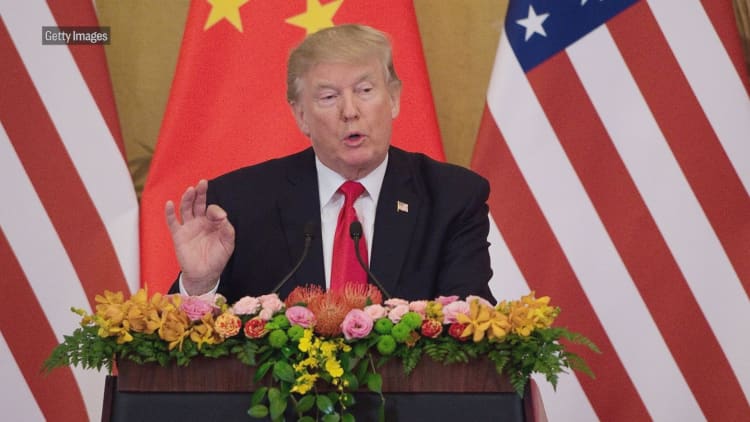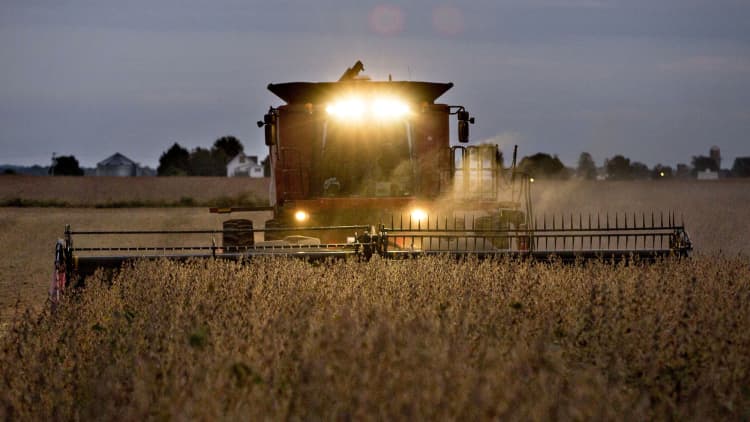
President Donald Trump, wanting to protect U.S. farmers from China's threatened tariffs, may end up pitting his country against many more nations in a trade spat that has hit global markets and worried the international business community, experts said Friday.
If the Trump administration chooses to subsidize American farmers further, that could trigger retaliatory tariffs and subsidies in major exporters of agricultural products such as the European Union and Brazil, the experts added.
An additional agricultural subsidy from the U.S. "brings third parties into the dispute, who could be expected, at a minimum, to complain to the World Trade Organization," said Simon Baptist, Asia managing director and chief economist at the Economist Intelligence Unit.
It is basically impossible for the U.S. to be confident that any actions it takes will protect its agricultural sector from Chinese tariffs, given the ways that other countries will respond to it.Simon BaptistAsia managing director and chief economist at the Economist Intelligence Unit
Chad P. Bown, a senior fellow at the Peterson Institute for International Economics, sounded a similar warning. In a Twitter post, he said additional subsidies for American farmers would escalate trade tensions beyond the two largest economies in the world.
Farmers in Europe, Canada, Australia, Brazil and Argentina who have been "suffering because of Trump subsidies" would demand retaliatory actions from their governments, Bown said.
There have already been complaints about American agriculture on the world stage.
Chinese state-run media Global Times said in an editorial last month that subsidies from the U.S. government have given American soybean farmers an unfair competitive advantage in selling to China. Subsequently, Beijing on Wednesday announced tariffs on 106 U.S. products, including soybeans — the most valuable U.S. agricultural export to China.
In response, Trump on Thursday proposed an additional $100 billion worth of tariffs on Chinese products and asked the U.S. Secretary of Agriculture "to use his broad authority to implement a plan to protect our farmers and agricultural interests."
The U.S. Department of Agriculture told Reuters after the president's statement that it first needs to "see the reaction of what tariffs will be and what the reaction of markets are" in deciding on ways to shield farmers from the trade conflict.
Trump can't really help US farmers after all
Whatever measures the USDA eventually comes up with, it's unlikely that they would be effective because China can always impose counter-measures, experts said.
Such tit-for-tat could actually benefit other agricultural exporters because China may end up buying more from them instead of the U.S., Rajiv Biswas, Asia Pacific chief economist at IHS Markit, told CNBC in an email.

"Chinese tariffs on U.S. agricultural products will likely result in significant trade diversion to other agricultural exporters, as Chinese buyers switch import orders for items such as beef, wine, fruits, soybeans and cereals to other nations such as Australia, New Zealand, Brazil and the EU," he said.
That would mean the U.S. loses market share in a major consumer, even if additional subsidies help its farmers stay competitive internationally, Baptist said.
"It is basically impossible for the U.S. to be confident that any actions it takes will protect its agricultural sector from Chinese tariffs, given the ways that other countries will respond to it," he added.
—Reuters contributed to this report.


